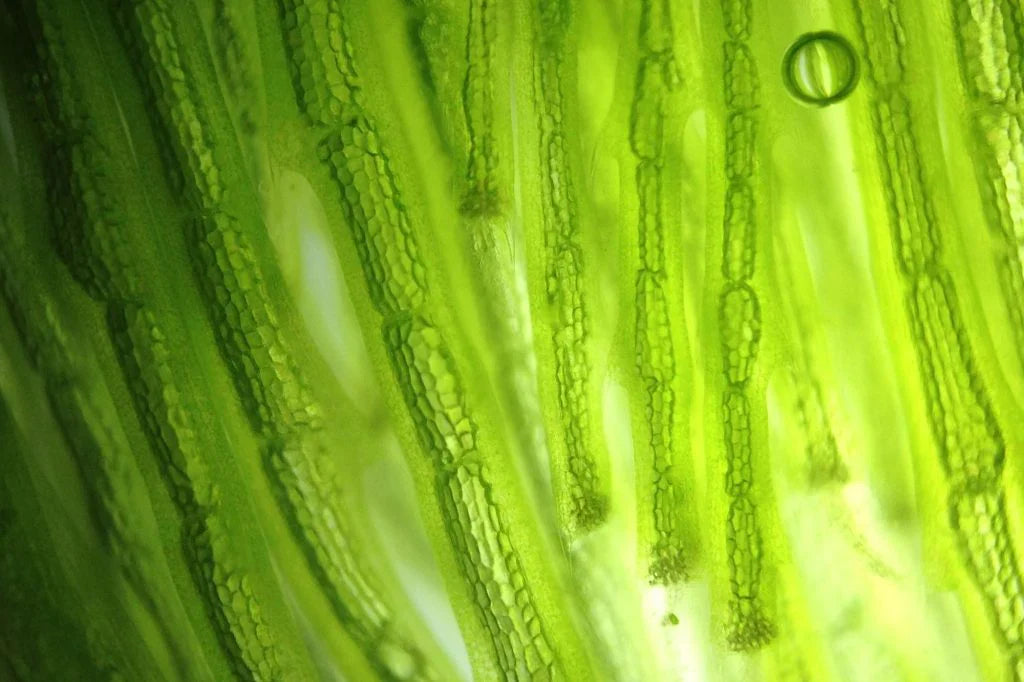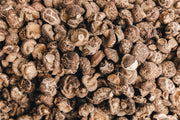DEEP DOWN IT'S A LEAN MEAN GREEN MACHINE! - MICROALGAE

Ever since omega-3 became regarded as a healthy supplement in human diets, pet parents have been targeting this ‘healthy fat’ in pet food as well.
What are Microalgae?
Microalgae are single cell organisms, typically found in freshwater and marine ecosystems.
Depending on the species, the size of these microscopic algae ranges from a few micrometres to a few hundred micrometres. Unlike macroalgae (seaweeds) or other kinds of plants, microalgae do not have roots, stems, or leaves. The biodiversity of microalgae is enormous. So far, approximately 50,000 out of an estimated 200,000-800,000 existing species have been identified by scientists.
Most microalgae species produce unique products and compounds, such as carotenoids, antioxidants, omega-3 fatty acids, enzymes, polymers, peptides and sterols. Together with bacteria, microalgae form the base of the food web and are nature’s original ‘superfood’.
Why not just use fish or fish oil in the recipes we hear you ask!
Fish and fish oil have long been the ‘default’ source of omega-3 for both human and pet food as oceans and seas worldwide were believed to provide an abundance of fish and other seafoods. However, over the last decades, evidence has grown that fish stocks worldwide are under pressure, most likely as a result of overfishing and (periodic) climate changes.
While fish oil is typically used in both human and pet food for its high omega-3 content, fish are not the original natural source of omega-3. Fish don’t synthesise or create fatty acids (DHA/EPA), they instead get the omega-3 from their diet in the form of plankton and single-cell algae. However, they also accumulate contaminants such as PCBs, dioxins and heavy metals, which end up in the fish oil. Compared with fish oil, microalgae are a direct, cleaner and more sustainable source of essential omega-3 fatty acids.
So, by extracting oil direct from the source, we are cutting out the middle man (or fish!).
Several studies have been conducted to ensure that using microalgae is safe for all types of dogs, including puppies and those who are pregnant or lactating.
So, what are the benefits of Microalgae?
· Reduced inflammation
· Improved skin, coat and joint health
· Improved heart and kidney function
· Improved nervous and digestive systems
· Great alternative source of omega-3 for dogs with skin allergies
· Free from ocean contaminants such as heavy metals, PCBs and dioxins
One study found that algae oil, compared to fish oil, lowered the cholesterol levels in dogs. Dogs being fed the high dose of DHA algae were observed to have lower cholesterol levels, compared to the fish oil group.
Another study found that a diet containing algae oil was chosen more often as the dog’s first choice, so the algae oil is more palatable for pooches when compared to a diet with anchovy or fish oil. The same study also investigated the digestibility of the inclusion of algae and found it increased the digestibility of nutrients and energy of the diet. (Souza et al., 2019)
Another study investigated the benefits of algae for ageing dogs and found that DHA supplied by dried algae supports healthy brain function in older dogs. In this study, older dogs (aged 8 and over) performed a cognitive test. They were asked to perform a test they had previously been trained to do. The dogs consuming the diet containing DHA from dried algae had a better performance than dogs consuming a diet without DHA or algae (Hadley, Bauer & Milgram 2017)
The algae powder used in Basil’s Superfood is highly efficient in providing long-chain omega-3 to pet food diets thanks to its high DHA level. With a minimum DHA level of 35%, considerably exceeding that of most concentrated fish oils, the powder we use is a high-quality alternative for traditional omega-3 sources. The powder is produced with closed fermentation systems without any risk of contamination, resulting in an exceptionally consistent algae biomass product.
While microalgae is a superfood in its own right, offering so many benefits, when put together with the other superfoods in Basil’s new range, you have one of the most innovative, nutritious and delicious raw recipes around.
Also remember that by taking a holistic and proactive approach to your dog’s health, including a balanced diet, regular exercise, regular check-ups and plenty of love and attention, you can help ensure your four-legged friend enjoys a long, healthy and happy life.
🩷🐾🩵










